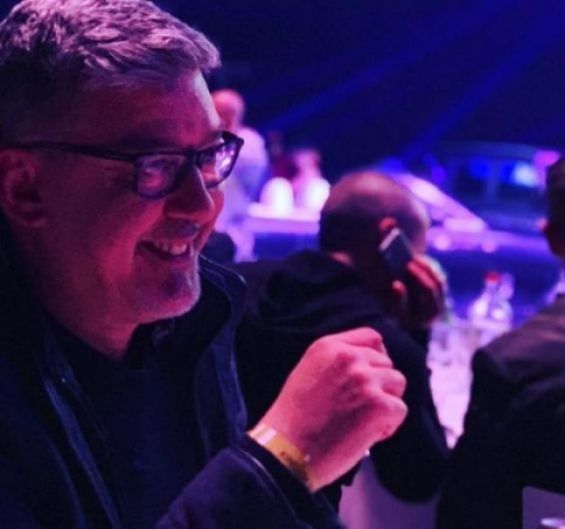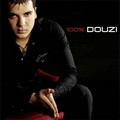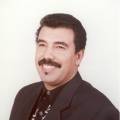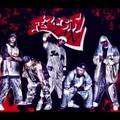Neither a serious road accident, which was a turning point in his life, nor the coronavirus pandemic twenty years later, will have taken Fouad Beniz's determination to move forward. It has been only a few days since he left the University Hospital Center (CHU) in Brussels, after having stayed there because of complications caused by of the coronavirus.
Speaking from home, where he is currently staying at, he told Yabiladi that he miraculously escaped the worst. «It was God who saved me», he said. The 47-year-old man was taken over by the Covid-19 cell following severe respiratory failure. Being well-known among the Brussels circles, the sad news affected many of his friends. His discharge from the hospital was a celebration, even for the medical team.
«On March 15, I felt that I had the flu and went to my pharmacist, who gave me some medicine, without any other specific symptoms», he recalled. Shortly afterwards, Fouad Beniz felt a lot of aches. «Climbing the stairs felt abnormally hard», he explained. «It was difficult to breathe and I felt that at the slightest physical effort : a few steps at home would make me extremely tired, then I started to have serious respiratory problems», he said.
A battle against Covid-19
It was then that Fouad Beniz thought of contacting his sister, who works at the Brussels University Hospital. He went to the emergency room, underwent a medical examination, and was then allowed to go home. But he was suffering and insisted on undergoing a second check up. He tested negative at first. «The doctor explained to me that its effectiveness was 70% and that in 30% of the cases, people tested negative while they were really infected with the virus», he said worryingly.
Indeed, a lung scan was the only thing that showed the medical team that Fouad was indeed suffering from respiratory problems. The level of oxygen saturation in his blood was at 90%, which is below the norm.
Supported by the Covid-19 cell, he was put on chloroquine treatment and antibiotics, in addition to artificial respiratory assistance. He underwent new examinations before getting eventually transferred to a new wing of the same hospital.
At the end of the fifteenth day, tests showed that Fouad Beniz had beaten the virus. He was allowed to go home but he had to follow a treatment for three months against a pulmonary embolism.
Staying at the hospital turned his life upside down. Before contracting the coronavirus, Fouad Beniz was one of the Brussels residents who volunteered to provide daily shopping for people who were unable to go out. He had also returned from Spain, where he had provided security for a match played in early March between FC Barcelona and Real Madrid football clubs.
«The meeting was held without special precautions, since the health situation did not yet require strong measures in the country,these were however decreed shortly after».
A determination reinforced by life's multiple challenges
Still resting at home, Fouad Beniz is impatient to resume his regular activities. Accustomed to a very active life, he had a terrible car accident during the mid-1990s that forced him to remain immobile for three months. He lost the ambition for studies and decided to join his father's restaurant, the first Moroccan cuisine venture in Brussels.
When he turned 23, Fouad Beniz split his time between working in the family business and indoor kickboxing. A passion he shared with one of his friends, a member of the special intervention security within a private company. One day while famous French artist Jean-Jacques Goldman was holding a concert in Brussels, Fouad Beniz received an offer from his friend, who asked him to replace him and be a bodyguard during that event.
«I had never worked in that field, but I accepted. Right after the concert ended, the boss of the company offered me a job», he recalled. It is then that his new life begun by accompanying artist tours or even sports championships.

From then on, Fouad Beniz provided security for the French football team during the World Cup in 1998. Later, in 2003, he obtained a bodyguard diploma, which opened doors for him to work with the security teams of Cristiano Ronaldo, Lionel Messi, P.Diddy, Kanye West, Mike Tyson or Zinedine Zidane, at various world events.
Fouad Beniz was also called to Morocco on several occasions. He thus joined the Moroccan Olympic Committee which participated in the Olympic Games in Athens, where he was in charge of the security of Moroccan athlete Hicham El Guerrouj. He also worked during famous football matches such as UEFA matches, as well as the World Cups of 2008, 2014 and 2018, notably with the Moroccan and Belgian teams.
A global brand
Thanks to these experiences, Fouad Beniz quickly took off and ended up opening his own agency Easyevents. In addition to security services, it also offers full packages for those who wish to go to concerts or meetings, thus ensuring their ticket booking, accommodation and transportation.
But for Fouad Beniz, one of the highlights of this journey remains the first official visit of King Mohammed VI to Paris, in 1999, where he participated, free of charge, in strengthening the team of bodyguards, after learning of the need for reinforcements.

The Moroccan security professional is actively involved with civil society. With several associations, he participates each year to actions aimed at helping refugees, undocumented migrants and vulnerable people in Belgium, in particular through food distribution.
While having recovered from the coronavirus, Fouad Beniz is also aware that not all patients have had the same luck. He remains concerned about the number of victims of the pandemic in the minorities' communities. «In the waiting room, I remember that most of the people who came to consult with symptoms similar to those of Covid-19 were of Moroccan or at least North African origin», he said.




 chargement...
chargement...












